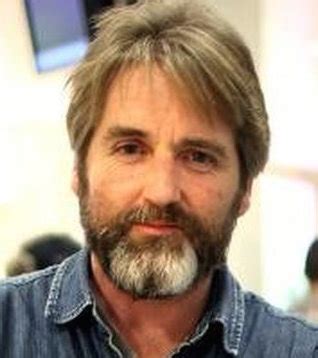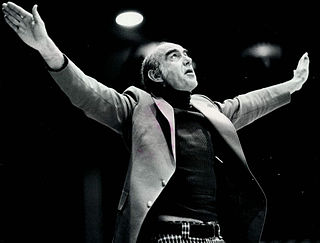A Quote by Steven Pressfield
I was keenly conscious of the comrades-in-arms who had fallen with me. A bond surpassing by a hundredfold that which I had known in life bound me to them. I felt a sense of inexpressible relief and realized that I had feared, more than death, separation from them. I apprehended that excruciating war survivor's torment, the sense of isolation and self-betrayal experienced by those who had elected to cling yet to breath when their comrades had let loose their grip.
Related Quotes
Being part of The L Word made me realize how much more television can be that what I had experienced in my lifetime in terms of being able to be of service to people. I had so many fans come up to me who were really deeply appreciative of the show and what it had meant for them and their own sense of identity and their own sense of inclusion in our society and in our culture.
It all made sense - terrible sense. The panic she had experienced in the warehouse district because of not knowing what had happened had been superseded at the newsstand by the even greater panic of partial knowledge. And now the torment of partly knowing had yielded to the infinitely greater terror of knowing precisely
The twentieth century saw an amazing development of scholarship and criticism in the humanities, carried out by people who were more intelligent, better trained, had more languages, had a better sense of proportion, and were infinitely more accurate scholars and competent professional men than I. I had genius. No one else in the field known to me had quite that.
She felt a stealing sense of fatigue as she walked; the sparkle had died out of her, and the taste of life was stale on her lips. She hardly knew what she had been seeking, or why the failure to find it had so blotted the light from her sky: she was only aware of a vague sense of failure, of an inner isolation deeper than the loneliness about her.
I found a Bill Evans record in the bookcase and was listening to it while drying my hair when I realized that it was the record I had played in Naoko's room on the night of her birthday, the night she cried and I took her in my arms. That had happened only six months earlier, but it felt like something from a much remoter past. Maybe it felt that way because I had thought about it so often-too often, to the point where it had distorted my sense of time.
I suddenly became strangely inebriated. The external world became changed as in a dream. Objects appeared to gain in relief; they assumed unusual dimensions; and colors became more glowing. Even self-perception and the sense of time were changed. When the eyes were closed, colored pictures flashed past in a quickly changing kaleidoscope. After a few hours, the not unpleasant inebriation, which had been experienced whilst I was fully conscious, disappeared. What had caused this condition?
When I think back, I felt like I had the life that a lot of white American kids grew up with in the suburbs in the States. I started noticing, as Apartheid's grip weakened, that we had more and more black kids at school; I had more and more black friends. But I never really saw a separation between myself and the black kids at school.
He had the face of one who walks in his sleep, and for a wild moment the idea came to me that perhaps he was not normal, not altogether sane. There were people who had trances, I had surely heard of them, and they followed strange laws of which we could know nothing, they obeyed the tangled orders of their own sub-conscious minds. Perhaps he was one of them, and here we were within six feet of death.
On one level my sense of despair had been dispelled by therapy, yet on another it had not been replaced by either the desire for a future or the concept of one. I felt more aware of who I was, but that in itself-dominated as it was by sensations of fragmentation and isolation-filled me with no great hope, and in many ways only fuelled an appetite for destruction.
Marilla felt more embarrassed than ever. She had intended to teach Anne the childish classic, "Now I lay me down to sleep." But she had, as I have told you, the glimmerings of a sense of humor--which is simply another name for a sense of the fitness of things; and it suddenly occurred to her that simple little prayer, sacred to the white-robed childhood lisping at motherly knees, was entirely unsuited to this freckled witch of a girl who knew and cared nothing about God's love, since she had never had it translated to her through the medium of human love.



































